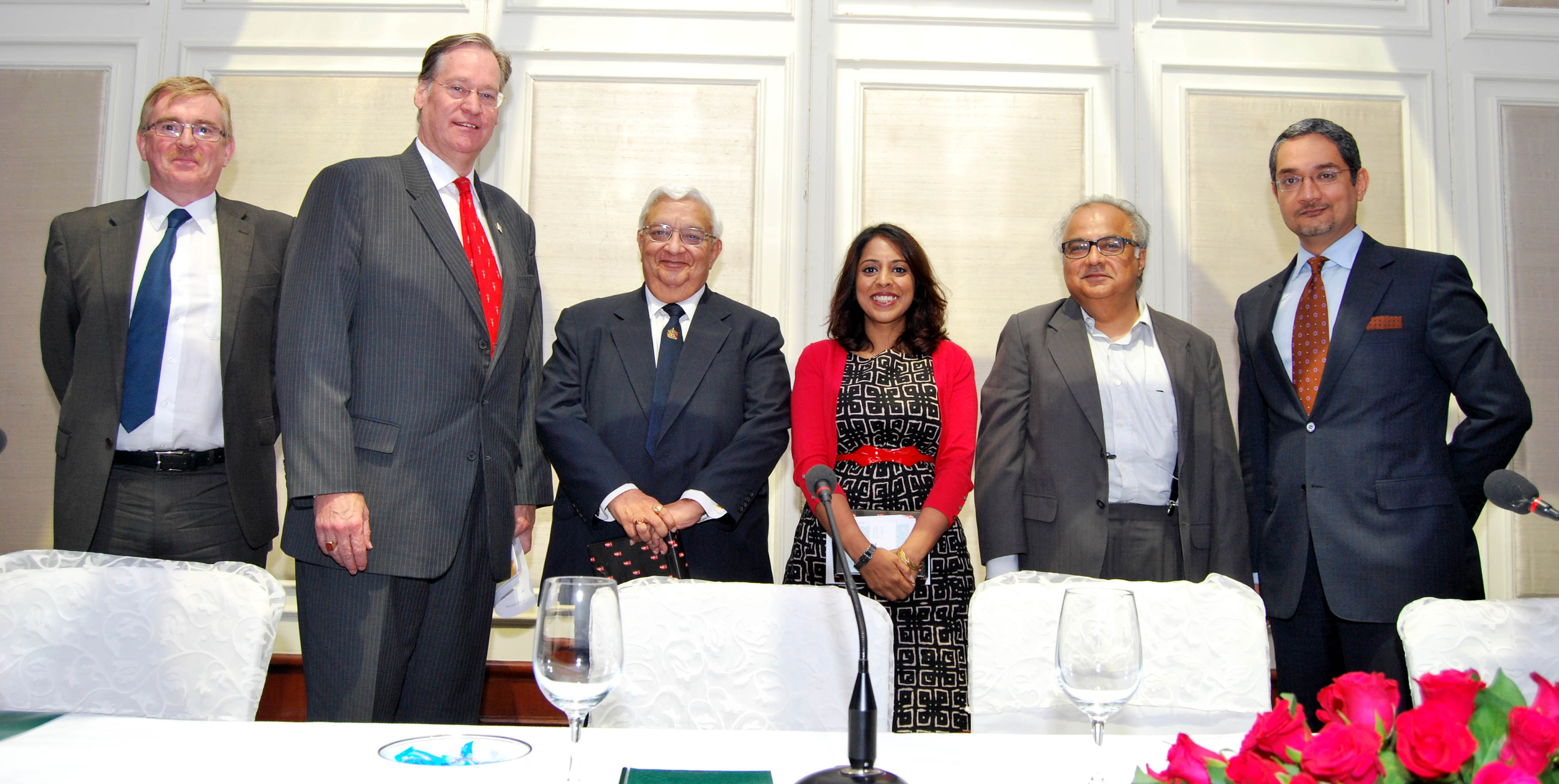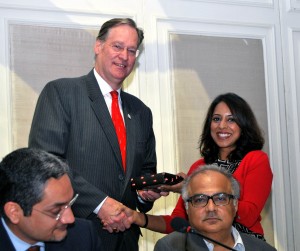 New Delhi: The Institute of Chartered Accountants England and Wales (ICAEW) launched its Exclusive Scholarship Scheme in Delhi. The audience listened to various speakers from different industries and backgrounds on the area of ‘Global skills essential for Chartered Accountants to accelerate business in a fast-changing world’. Anchor partners supporting the scheme include HDFC, Tata, Mahindra & Mahindra, PWC, KPMG, Genpact and Deloitte. ICAEW has opened the scholarship scheme to both corporate and individuals who are willing to dedicate time to study and learn part-time between July and October in order to take 2 exams in November, then with some further studying, 1 final exam in July next year. ICAEW’s scholarship takes the cost of the first 2 papers down from over 2.5 lakhs to Rs 40000.
New Delhi: The Institute of Chartered Accountants England and Wales (ICAEW) launched its Exclusive Scholarship Scheme in Delhi. The audience listened to various speakers from different industries and backgrounds on the area of ‘Global skills essential for Chartered Accountants to accelerate business in a fast-changing world’. Anchor partners supporting the scheme include HDFC, Tata, Mahindra & Mahindra, PWC, KPMG, Genpact and Deloitte. ICAEW has opened the scholarship scheme to both corporate and individuals who are willing to dedicate time to study and learn part-time between July and October in order to take 2 exams in November, then with some further studying, 1 final exam in July next year. ICAEW’s scholarship takes the cost of the first 2 papers down from over 2.5 lakhs to Rs 40000.
The event was followed by the official launch of the Scholarship Scheme by ICAEW President Mark Spofforth (President ICAEW & Deputy Chairman of the International Accounting Education Standards Board), who spoke of the important job that ICAEW and the global accounting profession have in ensuring that people can do business with confidence. A testament to ICAEW’s success here is that 55% of the current CEOs and CFOs of the FTSE 100 companies is an ICAEW member. This shows that global business has confidence in the skills that ICAEW creates in its members.
The speakers in Delhi included Vishesh Chandiok, National Managing Partner of Grant Thornton and Ex CFO Ranbaxy, Bimal Raizada, and Get Through Guides (GTG) CEO, Vandana Saxena Poria OBE.
Mr Spofforth then welcomed scholarship holders – leading ICAI members from corporate India and MNCs, who are being sponsored to prepare for the final exams of ICAEW, which gives these global skills.
The scholarship holders will undertake part time training from expert trainers, Get Through Guides (the official partner of ICAEW and ICAI), leading to giving 2 exams in November. They will go on to take the final exam in July 2013 and on passing, they will obtain full membership to ICAEW – one of the world’s most respected bodies.
Businesses have changed rapidly over the past 20 years. Vandana Saxena Poria, the moderator spoke of the impact of organisations becoming global, due to the fact that it has become easier to do business internationally through regulatory changes, alliances being formed and decreased cost of travelling. In addition, because of changing demographic trends and increasing purchasing power, lucrative new markets have been identified. Finally, technology has played a major part of making global business possible, changing both the speed and the way of doing business. Information is easily accessible through the internet, making it easier to make informed decisions.

Against this backdrop, speakers were invited to give their thoughts on skills needed support business in a globally changing environment. Vishesh Chandiok commented on the need for accountants to clearly identify what problems were and communicate solutions to various stakeholders. He explained that auditing was not about compliance any more, CAs needs to understand business risks and their impact on the business achieving its objectives. They need a holistic understanding of the challenges a business is faced with and a good CA should be able to communicate workable ways of mitigating risk. Key to this was the integration of knowledge of different areas of how a business operates.
Bimal Raizada spoke of how globalization required skills that CAs generally are not trained for – dealing with other cultures, managing teams, and integrating different aspects of running a global business – the merging of tax, law and strategy. A key issue is strong written communication skills, to speak to people all over the world and help them understand your point of view. Finally flexibility and change management is necessary in this day and age.
The opinions, beliefs and viewpoints expressed by authors, news service providers on this page do not necessarily reflect the opinions, beliefs and viewpoints of Hill Post. Any views or opinions are not intended to malign any religion, ethnic group, club, organization, company, or individual.
Hill Post makes no representations as to the accuracy or completeness of any information on this site page.



